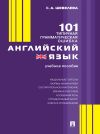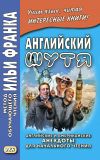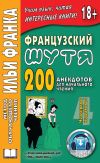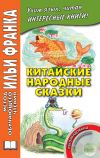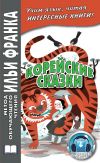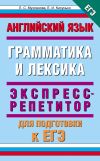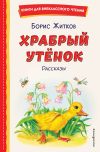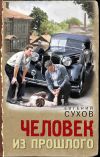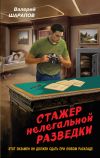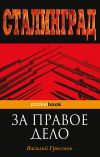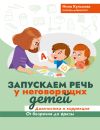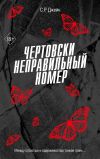
Автор книги: Виктор Миловидов
Жанр: Иностранные языки, Наука и Образование
Возрастные ограничения: +12
сообщить о неприемлемом содержимом
Текущая страница: 6 (всего у книги 20 страниц)
Section 24
Cat food
One woman has her bridge club every Thursday night and after a peaceful game or two with the ladies, she goes home to fix her husband dinner when he gets home from work. Well, one Thursday, she's playing a great game and she has an incredible hand when she notices the time. «Oh, no! I have to go fix my husband his dinner! He's going to be so angry if it's not ready on time.» And she dashes out of her friend's house, her great hand forgotten on the table.
When she gets home, she realizes she has very little time, not enough time to go to the supermarket, and all she has in the cupboard is a wilted lettuce leaf, an egg, and a can of cat food. In a panic, she opens the can of cat food, stirs in the egg, and garnishes it with the lettuce leaf just as her husband is pulling up. She watches in horror as he sits down to his dinner, and then she realizes he is loving it!
«Mmmm, darling, this is the best dinner you have made for me in forty years of marriage. You can make this for me any old day, mmmmm!» She was very pleased at being praised, and that night they had sex for the first time in months, and it was great!
Needless to say, every Thursday from then on, she made this dinner for her husband. She tells her bridge cronies about it and they are all horrified.
«You're going to kill him,» they said, but she continued to make him his cat food dinner.
Two months later, her husband died, and after the funeral all the Thursday bridge women attacked our new widow for being so callous.
«You killed him! We told you that feeding him that cat food every week would do him in! How can you just sit there so calmly and play bridge knowing you murdered your husband?»
The wife stoically replied, «Ahh, I didn't kill him. He fell off the mantel when he was licking his ass.»
Study the words and expressions given below:
bridge карт. бридж
club клуб
peaceful мирный
to fix делать, устраивать, готовить
incredible невероятный
to dash броситься
wilted увядший / вялый
lettuce салат
to stir in размешивать (с чем-л.)
egg яйцо
to garnish украшать гарниром
to pull up подъезжать
horror ужас
to please доставлять удовольствие
to praise хвалить
crony приятельница, приятель
to horrify ужасать
funeral похороны
widow вдова
callous бессердечный
feeding кормление
to murder убить
stoically стоически
mantel камин
to lick лизать
ass груб. задница
incredible hand карт. невероятно легкая рука у игрока (невероятное везение)
Needless to say Нет нужды говорить
to do sb in сленг убить кого-л.
Exercises to the text
1. Answer the questions to the text:
1. How often did the lady have her bridge game in the club?
2. Where did she have to hurry after the game?
3. What did she have in the cupboard when she returned home one Thursday after she had had an incredible hand?
4. Why did she watch her husband in horror when he was sitting to dinner?
5. What was the side-effect of the cat food?
6. What did the bridge women attack the lady for?
2. Fill in the blanks with the words from the text:
1. She goes home _______ her husband dinner when he gets home from work.
2. Well, one Thursday, she has an _______ hand.
3. And she _______ out of her friend's house.
4. All she has in the cupboard is a _______ lettuce leaf.
5. She watches in _______ as he sits down to his dinner.
6. She tells her bridge _______ about it and they are all horrified.
7. After the _______ all attacked our new widow.
3. Say if the statement is true or false:
1. I have to go fix my husband his dinner!
2. And she dashes out of the Bingo club, her great hand forgotten on the table.
3. In a panic, she opens the can of cat food.
4. She watches with joy as he sits down to his dinner.
5. Needless to say, every day from then on, she made this dinner for her husband.
6. She tells her bridge cronies about it and they are all delighted.
4. Match the words and expressions in the left column to those in the right one:

5. Translate from Russian into English:
1. Она едет домой, чтобы приготовить своему мужу обед.
2. Ей невероятно везет, когда она обращает внимание на время.
3. Она бросается вон из дома своей подруги.
4. Она осознает, что у нее очень мало времени.
5. Все, что у нее есть в буфете, это завядший / вялый лист салата, яйцо и банка кошачьего корма.
6. С ужасом она наблюдает, как ее муж садится за обед / обедать.
7. Нет нужды говорить, что с этого дня каждый четверг она готовила этот обед.
8. Мы говорили тебе, что кормление его этим кошачьим кормом убьет его.
Revise English Grammar
В предложении She was very pleased at being praised… используется герундиальный оборот, в который включена пассивная форма герундия;
в предложении We told you that feeding him that cat food every week… стоит активная форма герундия.
Проверьте, насколько хорошо вы владеете навыками использования этих форм; при необходимости обратитесь к грамматическому комментарию (раздел 27).
6. Fill in the blanks with either an active or a passive form of the Gerund:
1. Her husband insisted on (to give) _______ good healthy food for his dinner.
2. She couldn't help (to stay) _______ in the club until the game was over.
3. He was looking forward (to serve) _______ that cat food for his dinner.
4. She didn't object at all to his (to climb) _______ the mantel whenever he wanted.
5. He did not mind (to feed) _______ cat food at all.
6. She enjoyed (to play) _______ bridge with the ladies.
7. Transform Indirect Speech into Direct Speech by making necessary changes:
1. She told her cronies that she had to go home and fix her husband his dinner.
2. He asked her if she had had an incredible hand in bridge.
3. She said that her husband was going to be angry if it was not ready on time.
4. He said that that was the best dinner she had ever made for him in forty years of marriage.
5. He asked her to make that for him any old day.
6. They said that the woman was going to kill her husband.
7. The ladies said that she had really killed him with the cat food.
8. She asked her cronies not to blame her for it.
8. Find English equivalents to the Russian words in the scanword:

1. (1…) салат, 2. (g…) украшать, 3. (m…) убийство, 4. (с…) советовать, консультировать, 5. (w…) недостатки, недочеты, 6. (s…) чесать, 7. (е…) обмениваться, 8. (d…) требовать, 9. (m…) любовница, 10. (j…) драгоценности.
9. Render the joke.
Section 25
Football wedding
Two guys are talking about their boss's upcoming wedding.
One says, «It's ridiculous, he's rich, but he's 93 years old, and she's just 26! What kind of a wedding is that?»
The other says, «Well, we have a name for it in my family.»
«What do you call it?»
«We call it a football wedding.»
The first asks, «What's a football wedding?»
The other says, «She's waiting for him to kick off!»
Study the words and expressions given below:
upcoming приближающийся
ridiculous нелепый
to kick off футб. делать первый удар в начале игры; зд. сленг умереть, сыграть в ящик
Exercises to the text
1. Answer the questions to the text:
1. What were the guys talking about?
2. Why did they think the upcoming wedding ridiculous?
3. What name for a wedding of this sort do they have in the family?
4. Was the boss a good football player?
2. Fill in the blanks with the words from the text:
1. Two guys are talking about their boss's _______.
2. It's _______, he's 93 years old.
3. What _______ of a wedding is that?
4. What do you _______ it?
5. The girl's waiting for him to _______!
3. Match the two parts of the sentences:

4. Match the words and expressions in the left column to those in the right one:

5. Translate from Russian into English:
1. Ей только 26 лет!
2. У нас в семье есть название для этого.
3. Мы называем это футбольной свадьбой.
Revise English Grammar
Один из участников разговора обозначен в тексте как The other… Проверьте свои навыки использования прилагательного other и производных от него слов another, the other, others. При необходимости обратитесь к грамматическому справочнику (раздел 28).
6. Fill in the blanks with missing words; follow the directions given in brackets:
1. He has divorced recently, and he just wants to get himself (другую) _______ wife.
2. All (другие) _______ wives that he has had were also much younger than he was.
3. (Еще одна) _______ wedding, and he will really kick off.
4. Two guys turned up at the wedding; one was the bestman, (другой) _______ was his friend.
5. About half a hundred people invited to the wedding managed to get into the church; (другие) _______ had to wait outside.
7. Render the joke.
Section 26
Happy birthday present

A fellow was talking to his buddy, and he said, «I don't know what to get my wife for her birthday. She has everything, and besides, she can afford to buy anything she wants, so I'm stumped.»
His buddy said, «I have an idea. Why don't you make up a certificate saying she can have 60 minutes of great sex, any way that she wants it. If you did it, she'd probably be thrilled.»
So the fellow did.
The next day his buddy asked, «Well? Did you take my suggestion?»
«Yes, I did,» said the fellow.
«…And did she like it?» his buddy asked.
"Oh yes! She jumped up, thanked me, kissed me on the forehead and ran out the door yelling, 'I'll be back in an hour!!!' "
Study the words and expressions given below:
to get sb sth дать кому-л. что-л.
besides кроме того
to afford позволять себе
to stump разг. ставить в тупик
certificate свидетельство, сертификат
to thrill доставлять сильное удовольствие, сильно и остро возбуждать
suggestion предложение
forehead лоб
to yell вопить
Exercises to the text
1. Answer the questions to the text:
1. Who was the fellow talking to?
2. Why didn't he know what to get his wife for her birthday?
3. What sort of a certificate did the fellow's buddy suggest
that he do?
4. Why did he think that the wife would be thrilled?
5. Did the fellow take the buddy's suggestion and what came out of it?
2. Fill in the blanks with the words from the text:
1. A _______ was talking to his buddy.
2. She has everything, and _______, she can _______ to buy anything.
3. Make up a _______.
4. If you did it, she'd probably be _______.
5. Did you take my _______?
6. She jumped up, thanked me, kissed me on the _______ and ran out.
3. Say if the statement is true or false:
1. I don't know what to get my wife for her birthday.
2. Why don't you make up a certificate saying she can have one minute of great sex.
3. If you did it, she'd probably divorce you.
4. So the fellow did.
5. She jumped up, thanked me, kissed me on the forehead and ran out.
6. I'll be back in a minute!
4. Match the words and expressions in the left column to those in the right one:

5. Translate from Russian into English:
1. Я не знаю, что подарить своей жене на ее день рождения.
2. Я в тупике.
3. У меня есть идея.
4. Парень так и сделал.
5. Она выбежала из двери с воплем: «Я вернусь через час!!!»
Revise English Grammar
В предложении If you did it, she'd probably be thrilled… используются глаголы в форме так называемого сослагательного наклонения.
Проверьте свои навыки употребления данной формы; при необходимости воспользуйтесь грамматическим комментарием (раздел 29).
6. Fill in the blanks with appropriate forms of the verbs given in brackets:
1. If I (to know) _______ what to get my wife for her birthday, I would be really happy.
2. If she (to need) _______ something, she would have told me.
3. I (not to be stumped) _______, if she told me what she wants.
4. She would be even more thrilled, ifyou (to do) _______ it yourself.
5. If I hadn't taken your suggestion, people (not to make) _______ fun of me.
6. She (to be) _______ back in an hour, if she hadn't met you on the way.
7. If you (not to be) _______ so stupid, you wouldn't have made up a certificate of this sort.
7. Render the joke.
Section 27
How much to marry us?
Tom wished his wife were more attractive, but she wasn't. To tell the truth, he was no oil-painting, either.
After the ceremony, Tom asked the minister how much the cost was.
«Just give me what you think it is worth to have this lady for your wife,» replied the minister.
Tom looked at his wife, and handed the minister $50. The minister looked at Tom's wife and gave him $42 change.
Study the words and expressions given below:
wish желать
attractive привлекательный
oil нефть; масло
to paint писать маслом; красить
painting живопись
oil-painting масляная живопись; зд. картина маслом
ceremony церемония
minister священник
cost издержки, цена
to hand передавать, протягивать
change сдача, мелкая монета
what it is worth to have (sth) сколько стоит иметь (что-л.)
to tell the truth по правде говоря
Exercises to the text
1. Answer the questions to the text:
1. How did Tom's wife look?
2. Was he much different?
3. What did he ask the minister about after the ceremony was over?
4. How did the minister estimate the cost of the wedding?
5. Why were Tom's numbers different?
2. Fill in the blanks with the words from the text:
1. Tom's wife wasn't very _______.
2. He was no, either _______.
3. How much is the _______ of the ceremony?
4. Give me what it is _______ to have this lady for your wife.
5. Tom _______ the minister $50.
6. The minister gave him $42.
3. Match the two parts of the sentences:

4. Match the words and expressions in the left column to those in the right one:

5. Translate from Russian into English:
1. После церемонии Том спросил священника, сколько это стоит.
2. Просто дай мне столько, сколько, как ты думаешь, стоит твоя жена.
3. Ты хочешь иметь эту даму в качестве жены?
4. Том посмотрел на жену и протянул священнику 50 долларов.
5. Священник посмотрел на жену Тома и дал 42 доллара сдачи.
Revise English Grammar
В предложении Tom wished his wife were more attractive… используется одна из фразеологических конструкций, с помощью которых вводится сослагательное наклонение.
Проверьте свои навыки использования данных конструкций, в случае необходимости обращаясь к грамматическому комментарию (раздел 30).
6. Translate from Russian into English:
1. Жаль, что я не живописное полотно.
2. Пора бы мне жениться.
3. Если бы только он сказал мне вчера, сколько это стоит.
4. Жаль, что вы дали мне так много денег.
5. Пора бы вам дать мне 42 доллара сдачи.
6. Если бы он только посмотрел на нее перед тем, как вести в церковь.
7. Find English equivalents to the Russian words in the scanword:

1. (w…) желать, 2. (а…) привлекательная, 3. (m…) священник, 4. (с…) сдача, 5. (а…) позволять себе, 6. (s…) ставить в тупик, 7. (с…) стоить, 8. (b…) кроме этого, 9. (у…) вопить, 10. (h…) протягивать, давать.
8. Render the joke.
Section 28
Reverse roles
Mary was married to a male chauvinist. They both worked full time, but he never did anything around the house and certainly not any housework. That, he declared, was woman's work.
But one evening Mary arrived home from work to find the children bathed, a load of wash in the washing machine and another in the dryer, dinner on the stove and a beautifully set table, complete with flowers.
She was astonished, and she immediately wanted to know what was going on. It turned out that Charley, her husband, had read a magazine article that said that working wives could be more romantically inclined if they weren't so tired from having to do all the housework in addition to holding down a fulltime job.
The next day, she couldn't wait to tell her friends in the office. «How did it work out?» they asked.
«Well, it was a great dinner,» Mary said. «Charley even cleaned up, helped the kids with their homework, folded the laundry and put everything away.»
«But what about afterward?» her friends wanted to know.
«It didn't work out,» Mary said. «Charley was too tired.»
Study the words and expressions given below:
chauvinist шовинист
male chauvinist мужской шовинист; человек, отстаивающий права мужчин
to declare заявлять
to bathe купать
load груз
wash стирка
dryer сушилка
stove плита (газовая или электрическая)
to astonish удивлять, изумлять
magazine журнал
article статья
to incline склоняться (к чему-л.)
to fold складывать
laundry белье для или после стирки
afterward впоследствии, потом
around the house по дому, в доме
full-time work работа на полный рабочий день (на ставку)
to set the table накрывать стол
complete with sth законченный, завершенный (чем-л.)
to turn out являться, неожиданно появляться, оказываться
in addition в дополнение
to hold down осуществлять, придерживаться, выполнять
to work out получаться, осуществляться
to clean up убирать со стола
to help sb with sth помогать кому-л. в чем-л.
Exercises to the text
1. Answer the questions to the text:
1. What sort of a man was Mary married to?
2. Why didn't he do any work around the house?
3. Why was Mary astonished when she arrived home one evening after work?
4. What made Charley do all the work about the house and, in addition, cook a dinner?
5. What didn't work after all, and why?
2. Fill in the blanks with the words from the text:
1. They both worked _______ time.
2. Housework, he _______, was woman's work.
3. Mary found the children _______.
4. A load of _______ was in the dryer.
5. She was _______.
6. It _______ that Charley had read a magazine article.
7. Working wives could be more _______ inclined if they weren't so tired.
8. They had to do all the housework into holding down a full-time job.
9. Charley helped the _______ with their homework.
3. Say if the statement is true or false:
1. He always did everything around the house and certainly all the housework.
2. One evening Mary arrived home from work to find the children bathed.
3. She immediately wanted to know what was going on.
4. The next day, she couldn't tell her friends in the office about it.
5. Well, it was a great breakfast.
6. Charley cleaned up and helped the kids with their homework.
4. Match the words and expressions in the left column to those in the right one:

5. Translate from Russian into English:
1. Он никогда не делал ничего по дому.
2. Мэри приехала домой с работы и обнаружила, что стиральная машина загружена.
3. На плите был обед, а стол был прекрасно сервирован и украшен цветами.
4. Она немедленно захотела узнать, что происходит.
5. В статье говорилось, что работающие жены могли бы быть более романтически настроенными.
6. Кроме того, у нее была работа на полный рабочий день.
7. Она не могла дождаться, когда расскажет своим приятельницам в офисе.
8. А что было потом?
Revise English Grammar
В предложении The article said that working wives could be more romantically inclined if they weren't so tired from having to do all the housework… сослагательное наклонение основано на использовании глагола could в первой части предложения.
Кроме глагола could, в подобного рода конструкциях может использоваться глагол might. При этом изменяется значение конструкции.
Проверьте свои навыки использования данных глаголов; при необходимости обратитесь к грамматическому комментарию (раздел 31).
6. Translate from Russian into English:
1. Если бы он любил свою жену, он делал бы работу по дому.
2. Если бы она не уставала так на работе, она могла бы быть романтически настроена каждый день.
3. Если бы она приехала с работы раньше, у него не было бы времени сделать всю работу по дому.
4. Если бы у них были бабушка или дедушка, они могли бы присматривать за детьми.
5. Если бы он не прочитал этот журнал, он вряд ли приготовил бы обед.
6. Если бы он не устал, это бы сработало.
7. Turn the sentences into Active:
1. All the housework is done by Mary.
2. The children were bathed by the husband.
3. The table has been laid by Charley.
4. Mary was astonished by what she saw.
5. The laundry is being folded by Mary herself.
8. Render the joke.
Section 29
We fight so much
Two Yuppettes were shopping. When they started to discuss their home lives, one said, «Seems like all Alfred and I do anymore is fight. I've been so upset, I've lost 20 pounds.»
«Why don't you just leave him then?» asked her friend.
«Oh! I'd rather not,» the first replied. «Not yet. I'd like to lose at least another fifteen pounds first.»
Study the words and expressions given below:
yuppette сленг yuppie (a young urban professional) молодой горожанин-профессионал (ette – уменьшительный суффикс)
upset грустный, опечаленный
pound фунт
seems like all we do anymore is fight похоже, что все, что мы теперь делаем, это ругаемся
I'd rather not я бы не стала
Exercises to the text
1. Answer the questions to the text:
1. What is a yuppie?
2. What were the yuppies doing?
3. Who's Alfred?
4. What are Alfred and his girl doing all the time?
5. What's the advantage of this way of life?
2. Fill in the blanks with the words from the text:
1. Two Yuppettes were _______.
2. They started to discuss their _______ lives.
3. Seems _______ all we do anymore is fight.
4. I've _______ 20 pounds.
5. Why don't you _______ leave him?
6. I'd _______ not.
3. Match the two parts of the sentences:

4. Match the words and expressions in the left column to those in the right one:

Translate from Russian into English:
1. Это меня так расстраивает.
2. Почему ты его не оставишь?
3. Пока нет.
4. Я бы хотела сперва сбросить еще пятнадцать фунтов.
Revise English Grammar
В предложении I'd rather not… (Iwould rather…) используется конструкция, с помощью которой в сослагательном наклонении выражается предпочтение. Близкой по значению, но наделенной иными смысловыми нюансами, является конструкция I'd better (I had better).
Проверьте навыки использования данных конструкций. При необходимости обратитесь к грамматическому комментарию (раздел 32).
6. Translate from Russian into English:
1. Я бы предпочел, чтобы ты пошла в магазин.
2. Нам бы не следовало обсуждать наши домашние обстоятельства.
3. Вам бы не следовало ругаться все время.
4. Я бы предпочла потерять 20 фунтов, чем быть толстой (fat).
5. Тебе следовало бы бросить его.
6. Я бы предпочла не отвечать.
7. Render the joke.
Правообладателям!
Это произведение, предположительно, находится в статусе 'public domain'. Если это не так и размещение материала нарушает чьи-либо права, то сообщите нам об этом.

